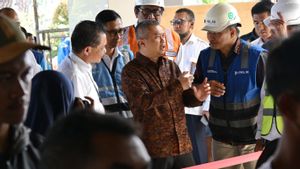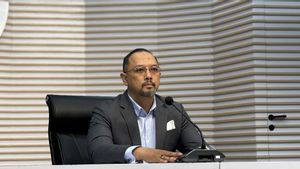JAKARTA - The DPR asked the Government to conduct an in-depth study of the proposed civil servant pension fund (Civil Servant) scheme. This follows the Government's plan to change the retirement fund scheme from a pay as you go system to a full fund for retired civil servants.
Currently, the civil servant retirement scheme uses the legal basis of Law Number 11 of 1969 which regulates retirement insurance (JP) programs and old age guarantees (JHT) for civil servants. In the pay as you go scheme, PT Taspen collects 4.75 percent of participant contributions from employee income (main salary plus wife and child allowances) every month, and is added to the state budget.
"The plan to change the civil servant pension fund scheme needs to be studied more carefully and empirically," said Member of Commission XI DPR RI, Willy Aditya, Wednesday, August 31.
Payment of pension benefits by the state budget for retired central and regional civil servants also includes widows or widows and still in school. This is the reason why every year the budget allocation for retired civil servants increases.
The government also proposed changing the scheme to full-funded where civil servant pension funds were taken from the percentage of take home pay (THP). The payment will also be paid in partnerships between civil servants and the government as employers, with the hope that the state's obligations can be more controlled.
The full-funded scheme is also intended to foster pension funds that will bring more benefits to retired civil servants. Willy hopes that the change in the retirement fund scheme takes into account elements of productivity.
"With the current PNS salary system which also provides a remuneration of work achievements, it is natural that the future retirement system also shows the government's concentration to encourage the work achievements of civil servants so that the benefits they receive are also in accordance with their work contributions for the country," he said.
In the current scheme, the percentage of THP for civil servants is indeed much greater than the monthly salary set by the government. However, the THP also includes allowances and official travel fees whose value can be greater than official salaries.
The DPR supports efforts to reduce the burden on state finances due to the payment of pension obligations. For this year alone, the allocation of the state budget to pay civil servants pensions is IDR 136.4 trillion.
Even so, the state is asked to still guarantee that retired civil servants are not burdened in their old age. The new scheme is considered to be able to benefit retired civil servants because with a full-funded scheme, the pensions to be received can be greater than the current scheme.
"I personally hope that the management of civil servant pension funds, which are large in number and sourced from the state budget, can also revive the real economy and industry," said Willy.
"We will see how the pension funds in Scandinavian, European, American and other countries can fund their industry," continued the Deputy Chairman of the Legislative Body (Baleg) of the DPR RI.
According to Willy, the pay as you go (PAYG) scheme, which has been used since the 50-60s, is more strongly directed at political nuances under the pretext of social security. "We will see for ourselves how the management of this pension fund continues to be a 'burden' of state financing," he said.
Meanwhile, the full-funded scheme is said to be more suitable for developed countries where many changes in employees occur in a short time but does increase the current assets for budget expenditures. This is in accordance with various studies. If you mean sharing the burden between the central and regional budgets, you should just say so. However, it must also be seen as regional financial capacity, explained Willy. This legislator from the East Java XI electoral district added that studies on changes to the retirement fund scheme also need to consider the analysis of developing economic factors. Willy mentioned, such as market, investment, inflation, sustainability and others.
The goal is for the retirement fund manager to be more productive and optimal in providing services. Not just raising funds from civil servants and then looking for safety in managing and managing, he hopes for a big salary," he said.
Willy said that the current retirement fund scheme system used in Indonesia is actually also used as a reference for other countries. They use models that depart from the amount and contribution pattern as in Indonesia. This needs to be considered in a study conducted by the Ministry of Finance," added Willy.
Willy emphasized that the consideration of changing the civil servant pension fund scheme is not only a matter of sharing the burden of contribution between the local government, the central government, and employees.
"While the country is facing various challenges of the global crisis, there needs to be a change in a scheme that does not add to the burden on state finances but can still benefit civil servants in their old age," he concluded.
The English, Chinese, Japanese, Arabic, and French versions are automatically generated by the AI. So there may still be inaccuracies in translating, please always see Indonesian as our main language. (system supported by DigitalSiber.id)













